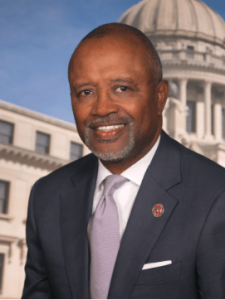The 2024 Mississippi legislative session is less than a week away and lawmakers are expected to bring up the ballot initiative process after motions to restore citizens’ ability to propose laws and constitutional amendments failed in recent years.
Mississippi’s initiative process was stripped in 2021 after the state’s supreme court found Initiative 65, a successful grassroots medical marijuana campaign, to be unconstitutionally certified despite receiving support from 74 percent of the voters. Since then, the House of Representatives and Senate have failed to come up with a joint resolution that would recertify the citizen-led initiative process.

During the 2023 session, the two chambers could not come to an agreement on the threshold of signatures necessary to allow citizens the ability to propose a law. The House saw 106,000 as a suitable number of signees to put a measure up for a statewide vote. Meanwhile, the Senate found 240,000 signatures to be the most appropriate figure.
House Minority Leader Robert Johnson, D-Natchez, said that the signature threshold should not be the holdup in the coming session. He is willing to work with his colleagues in the Senate to reach a happy medium.

“I don’t have a problem requiring more signatures… If it’s going to make it a more thorough and more trustworthy process, that’s fine,” Johnson said on MidDays with Gerard Gibert.
Johnson’s main concern lies in the idea of the legislature choosing what voters can and cannot put up for a statewide vote.
After medical marijuana was passed through the initiative process, many lawmakers feared that other efforts led by the people would look to address issues that state leaders feel should go through the legislative process. One Republican-led measure in 2023 proposed that only the legislature can make amendments to the state constitution while restricting residents from placing issues regarding abortion or the Public Employees’ Retirement System on the ballot.
Johnson believes Mississippians are educated enough to speak for themselves without being limited by elected officials.
“What I don’t want to see is us limit what people can put on [the ballot]. I think the voters in this state and the citizens of this state are smart enough to know what they want,” Johnson said. “I think we ought to give them access. If they can get the signatures to get it, I think we ought to provide that.”
On the Senate side, Daniel Sparks, R-Belmont, is a little more skeptical of giving voters the plenary authority to circumvent the legislature. He is also not in favor of allowing the state constitution to be altered by citizens.

“I think the question that Republicans, particularly, need to ask themselves is, ‘We have all eight statewide offices. We have supermajorities on both sides. What are people trying to pass with the initiative process?'” Sparks said on The Gallo Show. “If you really sat down and listened, it has to do with marijuana, it has to do with abortion, it has to do with things that otherwise would not pass through the legislature.”
Sparks is even more wary of giving the voters the privilege to advance an initiative that could have financial ramifications on Mississippi.
“I think we need to think long and hard about what we’re doing and what that means if somebody’s going to pass something that causes the state of Mississippi to impact its budget,” he continued. “I think it can be done. I think the opportunity is out there.”
With the Senate having strict parameters set for the process by which appropriations bills are passed, Sparks sees the need to set strict guidelines on any citizen-led measure that would cost Mississippi money.
However, he is still of the belief that the ballot initiative process can be restored, just as long as modifications are made to ensure that lawmakers are not completely bypassed on issues that would typically warrant legislative action.
The session will begin on Tuesday, January 2. Both chambers will gavel in at noon.







